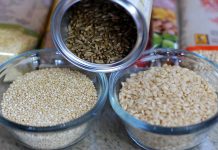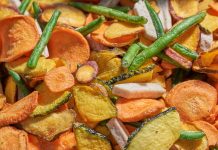
I came across your website after hearing about it on the 6:00 o’clock news. We have a 6 1/2-year-old daughter who is causing us some concern. Recently she discovered that meat comes from animals and refuses to eat it. I can accept that, but what foods can I give her in place of meats?
She is also a fairly picky eater. She refuses cheese, butter, and eggs. She will eat peanut butter, but I cannot send that to school for lunch because her school has a “peanut ban”. She enjoys yogurt. She eats the basic vegetables and limited fruit (apples, peaches, fruit cocktail). She also takes a children’s multivitamin with iron every day. I believe she is in the 75% range for height and weight (she is 52 pounds and 49 inches tall), so I am not concerned about her physical growth. Any suggestions as to what she should be eating each day in place of meats would be greatly appreciated. Thank you.
Will she drink milk as it doesn’t result from killing animals as she already eats yogurt?
Tofu and other soybean products contain complete protein. If she has decided to not eat meat, I would talk to her about eating a greater variety of grains, beans, fruits, and vegetables. I would recommend you read my vegetarian topic for more specific information. You can also access the Vegetarian Resource Group at http://www.vrg.org/ for more information including recipes.
While height is genetically determined, it can be affected by a change in nutritional status i.e. limited food intake. Meat eaters are usually taller for age than vegetarians as represented by several African tribes. Since your daughter is only 6 1/2-year-old, my concern is that she continues to grow along the 75th percentile for height and weight until she reaches at least 18 years of age when most females reach their height potential. I would recommend that her height and weight be monitored every 6 months. If she deviates from her earlier growth chart, then I would recommend you contact her physician.
While the daily multivitamin will provide her with vitamins and minerals, she still needs the building blocks found in protein. She also needs carbohydrates for energy and a moderate amount of fat for essential fatty acids.



